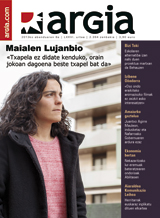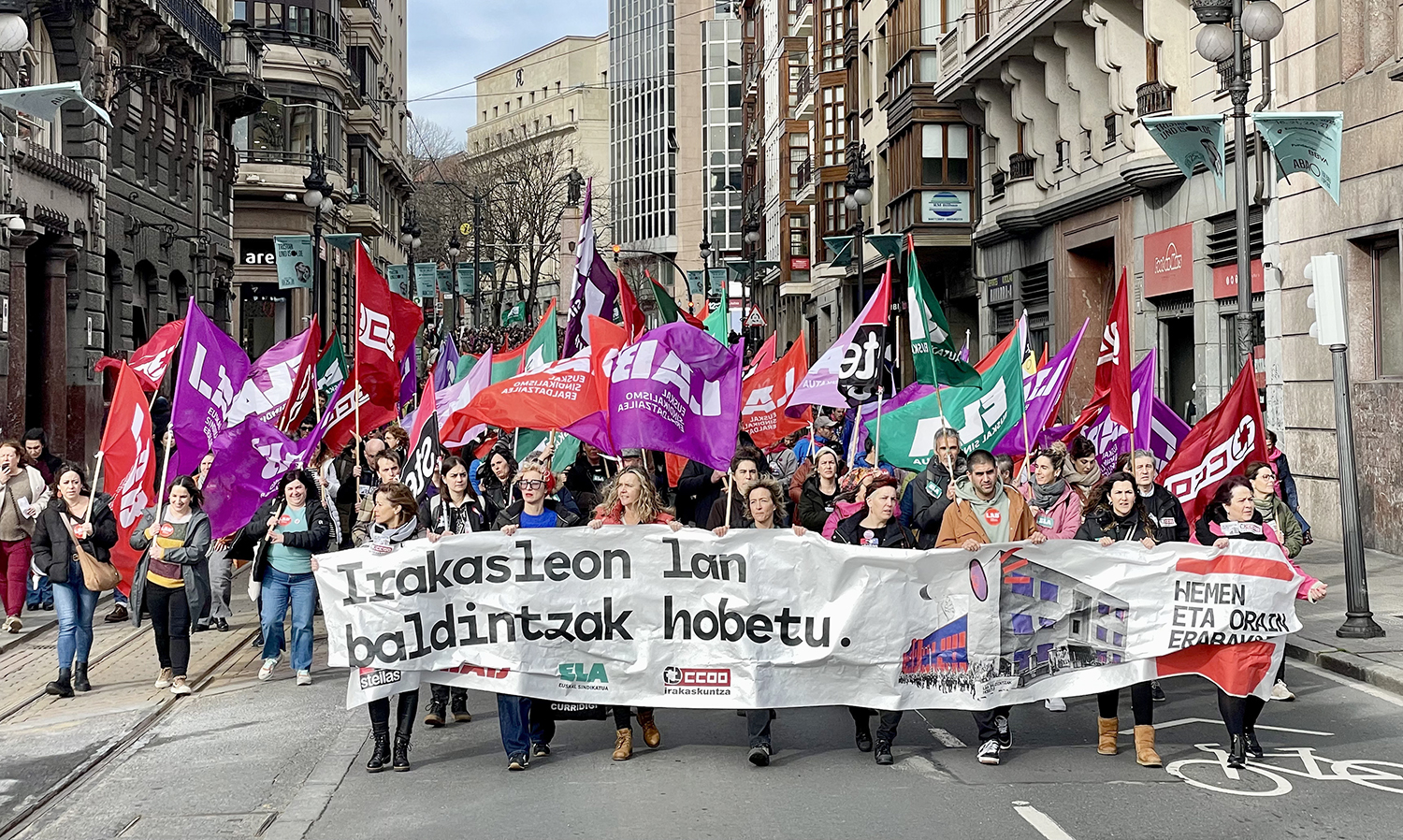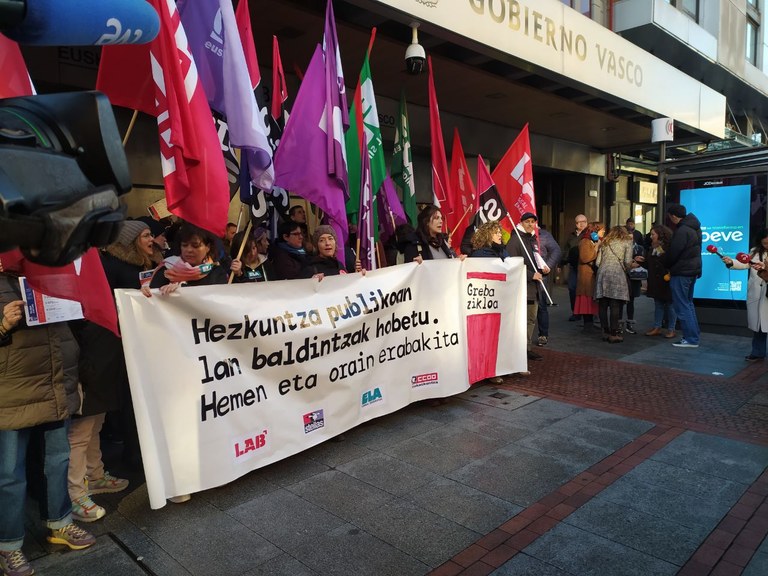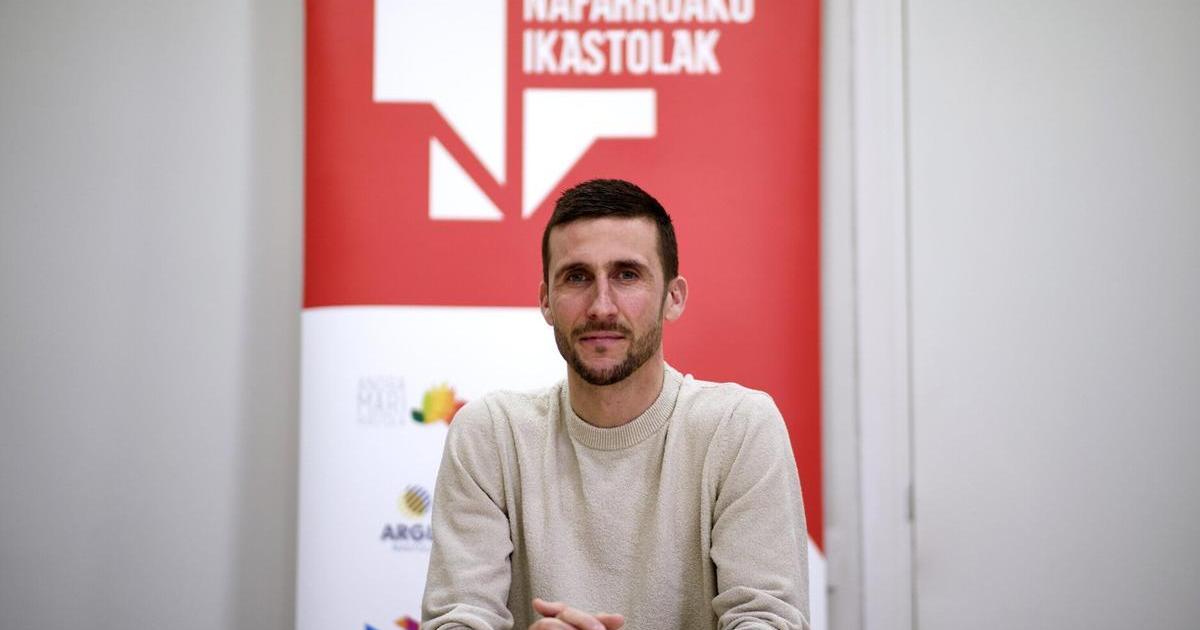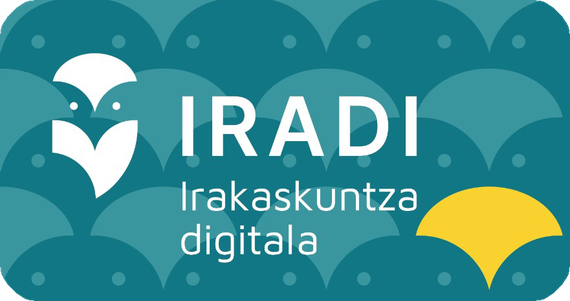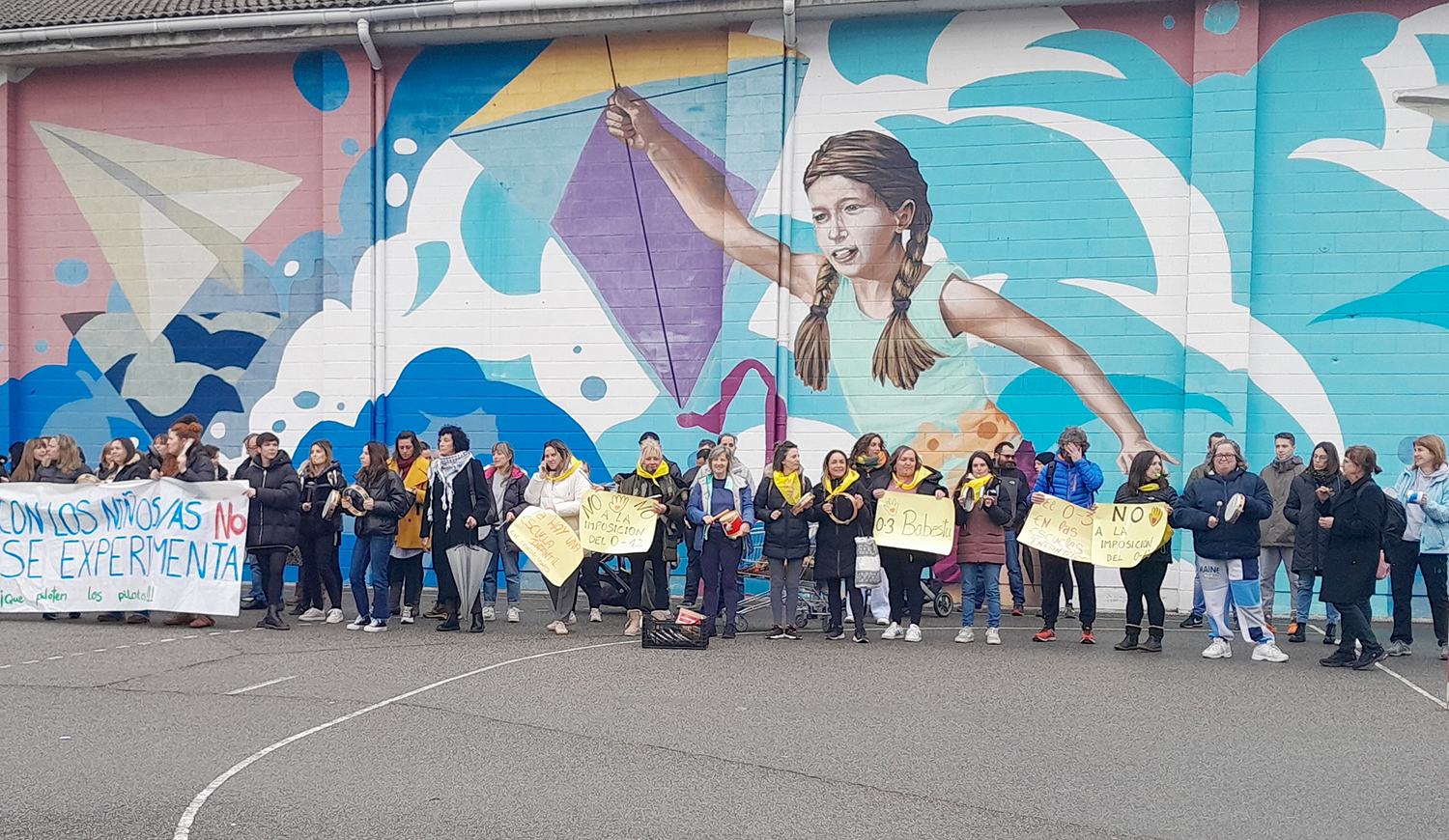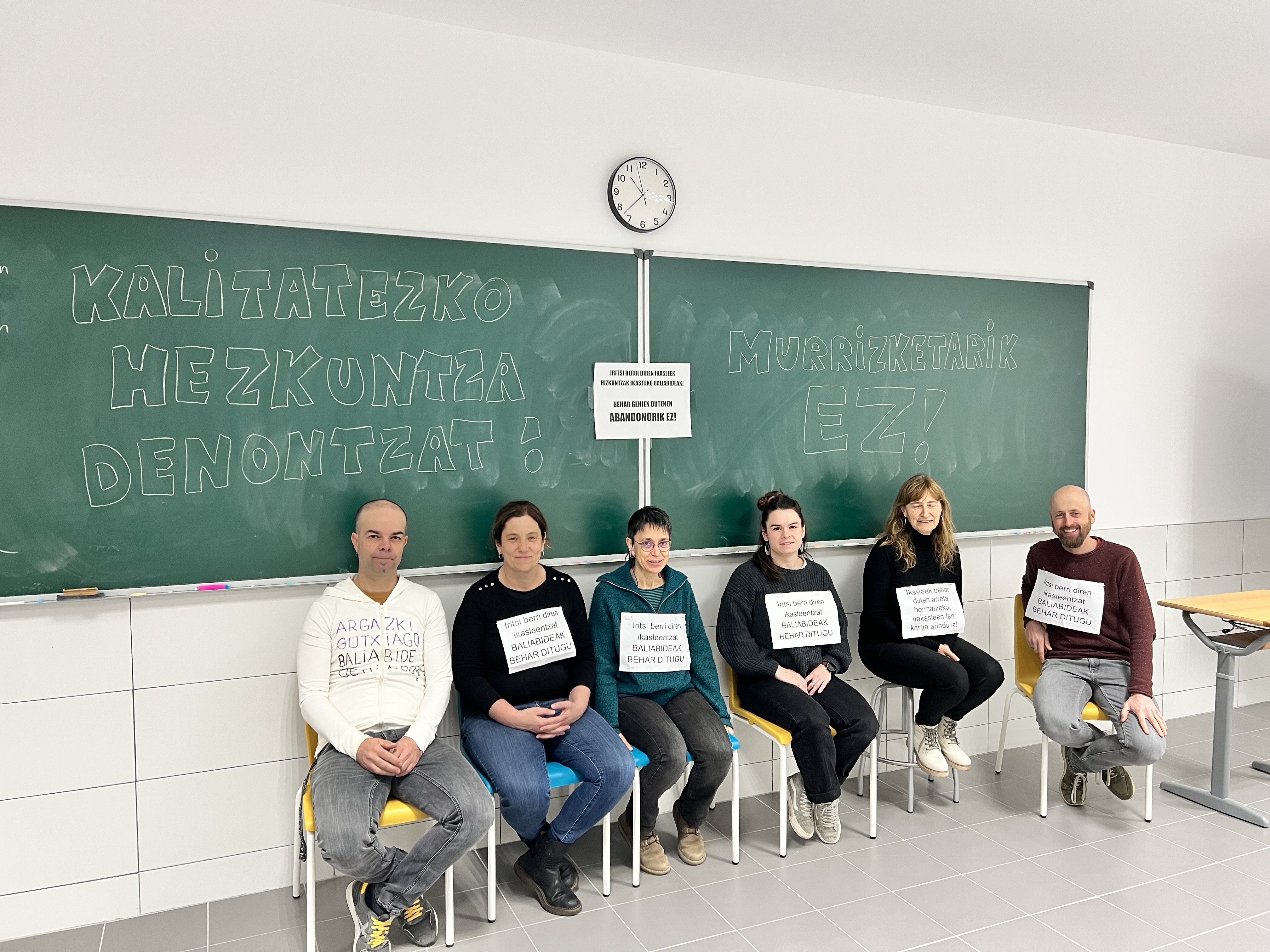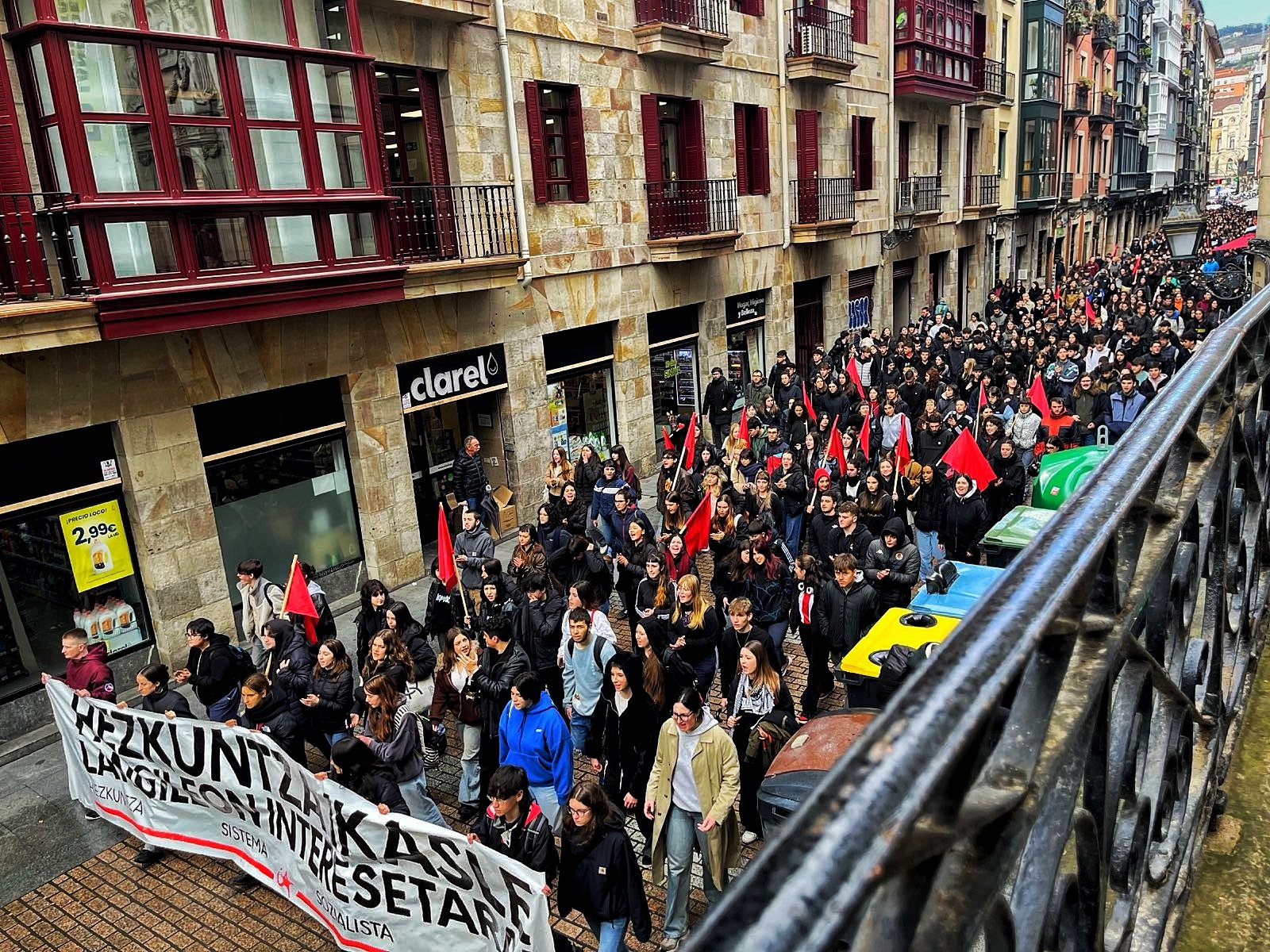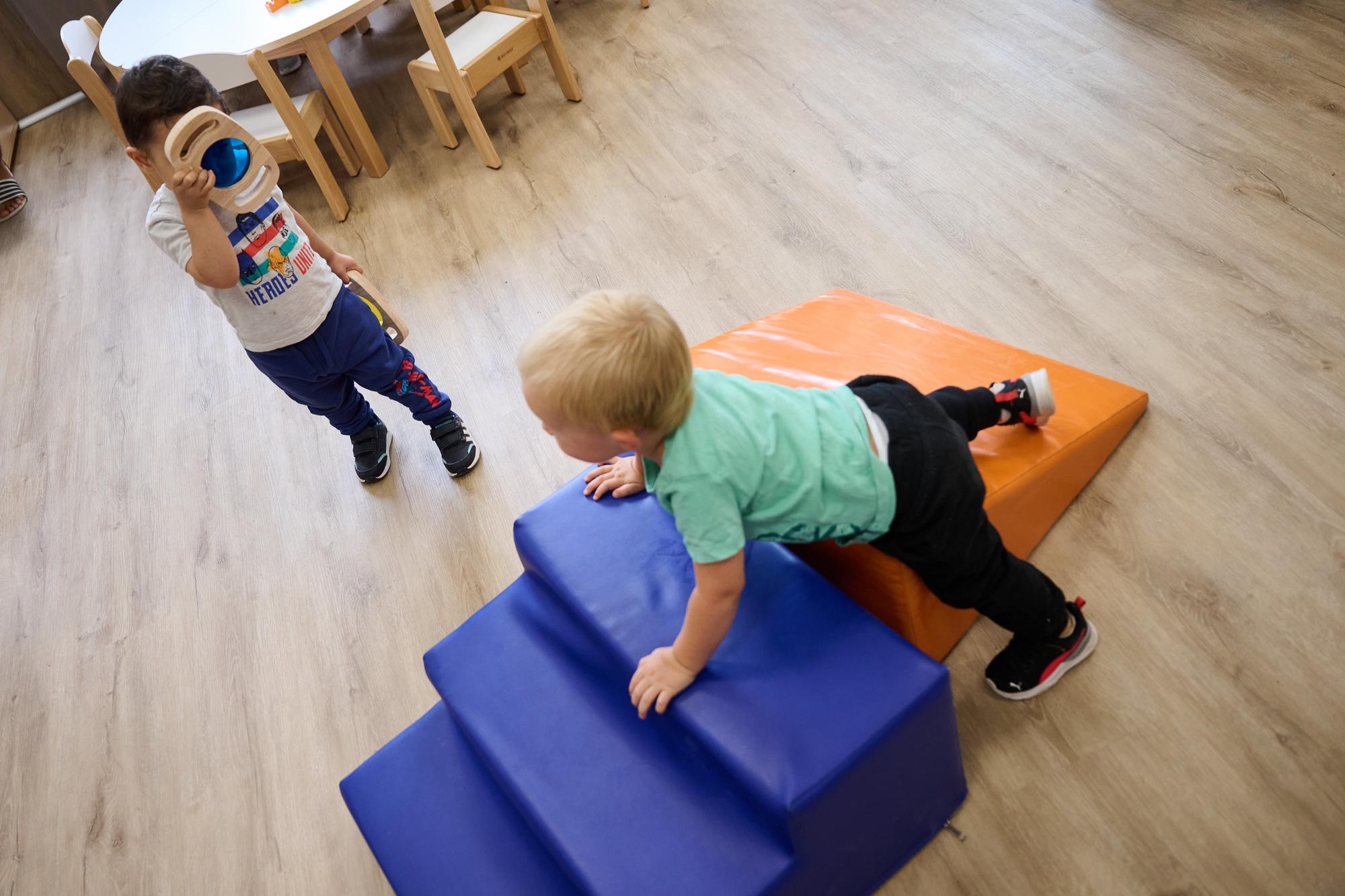Alternative to school
- The Bizi Toki project was launched in July 2011. It has put in place the idea of creating an alternative school and it has ended up being an alternative to school, as its members are clear that children’s education must be within the reach of parents. Children learn at Bizi Toki, not at school, through daily activities.
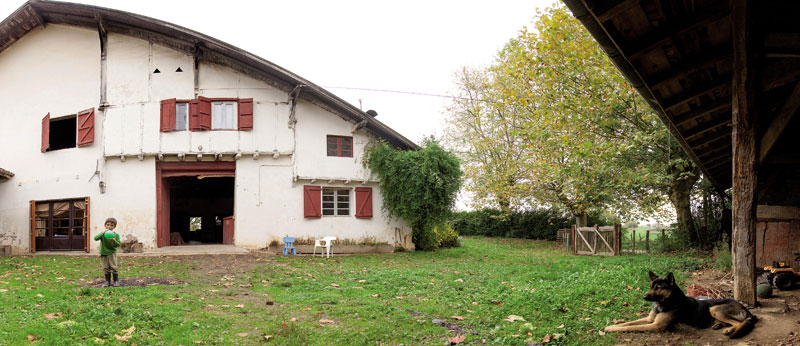
In Lower Navarre, in the region of Amikuze, is the village of Behauze, with over three hundred inhabitants. From the urban area, the Bizi Toki farmhouse is located in a privileged natural environment. The property is rented, but community members have explained to us that the owner is in favour of the project and that what they are paid for is negligible. The dog in the house has welcomed us and again Oihane has presented us. Oihan is a 6-year-old boy and we have known from his hand the lobby with pediment, the kitchen, the dry bath, the garden, the library, the space for psychomotor and physical activity… He has also taught us the works that are underway on the upper floor to condition the rooms.
Despite the fact that more people gather for auzolan and concrete activities, between six and seven families participate in day-to-day activities, in total about twenty people and half of them are children – the youngest have months and those over 11 years old. The degree of participation is in the hands of each of the families: each family fixes the number of days of the week coming to Bizi Toki, and they are organized accordingly. There is the possibility to sleep in it and every day there are activities and activities so that whoever wants to participate freely.
We've talked to two project members, in the kitchen. Two years ago, Andoni Estrella started to attend the auzolan calls, and for a few months he has been active in Bizi Toki. Gorka Torre has begun his journey and has been in charge of explaining the first steps of his team: “We got together a dozen people with the same concerns: we didn’t agree and we weren’t comfortable with the educational model there, both in public and private centers. We were clear about what we did not want, and so the starting point was what we wanted. What do we want to live with children? What do we want to convey? Until then, in the reflections realized within the school, the structure itself hindered reflection and we realized that a more general reflection was needed, forgetting the school model”. They visited alternative schools (Montessori, Freinet, Steiner, libertarian schools…) and drew the draft of the ikastola they dreamed of. The result of several months of work has been uploaded to the Internet bizitoki.org.
Slowly, Tor clarifies that the concept of school was overcome and that at a given moment a project was born that was going to be an alternative school to the school. “We believe that education is not a separate activity, delegated to institutions or professionals, but a process that is linked to the daily life of parents and adults. In schools they follow programmes produced by others, others decide what to transmit to children, and for us it is natural for parents to take up the education of children. We are not inventing anything, 40-50 years ago, in Euskal Herria the children learned in relation to the daily life of the community, the process of learning was developed in direct contact with a community”.
In the banner in front of the house you can read the need of all the people of the lineage to educate a child. Bizi Toki is based on generational exchange, there are no teachers or students, but people of different ages. “The education of children is in the hands of all children and adults, of the whole group, and that means that we have to collectively set out what the fundamental values are, what we want to convey to children in all areas,” Tor said. Yes, it has added that the greatest weight in the child is held by this child's own parents, according to Estrella.
Euskera, ecology, consensus, autonomy…
Speaking in Basque, carrying a lifestyle compatible with the ecological balance of the planet, living in contact with nature, sharing, prioritizing the solidarity economy, caring for mutual relations (honesty, trust, respect, support…), developing personal autonomy or seeking consensus are some of the values they want to promote in Bizi Toki. How do you transmit them to children? Defining values with meaning for adults and acting coherently. “We carry out the cultural, economic and social activities of each day based on the values that make sense for us and the children see it and live with us, learn because they give meaning to what they do.”
In short, Andoni Estrella remembers that community tasks, besides being a vital option, are also educational activities. So the orchard, for example, is not just an instrument of self-consumption, it's not just an economic task, it's also a good learning opportunity. Likewise, carpentry and plumbing works “have more value than any school of technology”, or cooking in the kitchen. “Mathematics, communication, human relations, auzolan… can work in many activities, they don’t have to be classified subjects. They also learn more subtle things that aren't common in school, for example, what it's like to participate in a congress. This way of organizing sucks it and for a child it is a great thing to come to an adult congress and make a proposal,” says Estrella.
They also have painting and dance workshops for parents. “Boys and girls know that at certain hours we will paint and dance and if they want they will come. And they come,” says Tor, as in the games room where there is pedagogical material: adults dedicate their time to writing, reading, calculus or research, and small ones show interest. “We have decentralized many reflections from children and brought them to adults, we have seen the values we want to live ourselves and we have created an environment based on that; children will approach and learn.” For example, a Erdaldun family came to them: they saw it well that their children learn Basque, but those who have to be willing to learn Basque first are the parents to make sense for the children.
“Yesterday – Tor has reported – Garazi had some concerns about the body’s organs, because grandpa has a problem with the prostate, and from that point of interest we have a whole field to work: because the urination system is tied to the blood system, blood to the respiratory system… They will learn things as curiosity appears.” In Bizi Toki, they have this slogan: children don't do everything they want, but they want to do everything they do.
Compatible with today's society?
To become fully involved in early childhood education, the project requires, above all, time. When we ask them how it is compatible with current life, Estrella clearly answers that if we are on an eight-hour working day and with the mortgage it is not feasible. Two key factors stand out: on the one hand, the reduction and simplification of needs, responding to these needs collectively. So in Bizi Toki, families can sleep there, and the idea of the future is to build a collective housing in the area. Or they drive collective orchard and self-production and collectively buy what they can't produce to make it cheaper. On the other hand, the reduction in requirements makes it possible to reduce paid working time and to release it further. Gorka Torre is a professor at the ikastola, for 12 hours a week; Andoni Estrella is a farmer, carries out seasonal work and comes home when he has time. “The hardest change is in the head – he has confirmed us – but if you are not afraid to do things differently and release them, when you start to take some of the usual criteria, it’s amazing to see how easy things can be.”
Let's go back to the pedagogical field. Among the educational principles listed are respect for the child's personality and the development of his/her critical personality, support for his/her singularity, consideration of his/her affective-emotional, sensory motor and mental dimension, respect for his/her sexuality or education without penalties or rewards. How is all of this put into practice? For group coexistence and to build things between all and all, they start from non-violent communication (respect, effort to understand the other, empathizing, listening…). They do not address a unique pedagogical model, feed on those who are interested in it, but one of the fundamental lines is the one that marks the way: the child himself must be the main actor of the learning process and the adults act as companions, bringing the interest of children further away, “demonstrating that they have to discover the whole world”. According to Torre, “if the child has a learning based on respect, which takes into account his rhythm and enthusiasm, if it is affectively correct and comfortable, he does not have to have pedagogical problems, he will learn naturally. How many hours at ikastola talking about motivation, without having to give an answer!”
Open days on bees, Euskera or feminism
As a collective, they have basic operating rules in Bizi Toki and are organized through weekly meetings: sharing responsibilities and tasks, reflecting, debating everyday life, designing workshops or preparing workshops. The days are open, with the aim of “offering something to society”; the themes are selected according to the needs that many people have perceived and participated so far. Among other things, these days have dealt with issues such as food self-consumption, games of yesteryear, knowledge of wild plants, seeds, bees and beekeepers, the transmission of values, Euskera and feminism.
However, there are difficulties. The largest, despite the wide network of friends around, there are still few who really dare to participate. “A dozen adults can be sufficient in such a project, but for a child it is not enough,” Tor said. In an age group, the child needs more children and we must join forces so that more people can join, so that we are not forced to schooling the child at the age of 7 or 13.” In this sense, today Bizi Toki is a project from all over Euskal Herria, as they see the most effective project for the whole of Euskal Herria. “If tomorrow we see that it is more convenient to locate in Tolosaldea, because we are not connected to Behauze, but today we have the most appropriate conditions. And if within fifteen years we managed to make this sufficiently developed to create a second in Vitoria and a third in Pamplona, well well”.
In short, the professor believes that it can be a good time to become aware of these times of crisis and move away from the capitalist model: “Bizi Toki is a social project, consistent with the possibility of living on this planet in the long term. The current reality does not lead us anywhere and Bizi Toki is opening a new path, very interesting and enriching, because we are living a sustainable, meaningful alternative. We're getting pretty close to how beautiful you can live in this life and it's a pleasure. Can we lose the everyday life of the consumer society? Are we afraid of that? Yes, but we can win a lot and it is worthwhile for people to delve into the subject, you don't have to change everything from one day to the next. At the same time, however, it takes the courage to say yes to an initiative that does not go in the usual sense of the current.”
Adin batetik aurrera umeak eskolatzeko asmorik al duten galdetu diogu Gorka Torreri: “Ikusten bada uneren batean haur bat eskolatzea beharrezkoa dela hainbat arrazoirengatik, guk prestatu egingo dugu horretarako. Adibidez, 17 urte bete arte hemen egoten bada eta unibertsitatera joan nahi badu, azterketak prestatzen lagunduko diogu hala egin dezan”.
Astelehen arratsalde-gaueko negoziaketa bilera luzearen ostean aurreakordiorik lortu gabe, EAEko hezkuntza publikoko irakasleak grebara deituak izan dira berriz ere; urtea hasi denetik bosgarren greba eguna izan da asteartekoa. Lanuzteek %75eko jarraipena izan dutela adierazi... [+]
Hezkuntza Sailarekin hainbat aldiz bildu dira hezkuntzako sindikatuak irakasleen lan baldintzak negoziatzeko. Hitzarmena berritzea, baina, ez dute lortu, eta martxoko eta apirileko bost greba egunetarako deialdia egin diete irakasleei. Lehenengoa astearte honetan izango da.
Nafarroako Ikastolen Elkarteak lehendakari berria du. Oier Sanjurjok hartu dio lekukoa Elena Zabaleta Andresenari. Beste zazpi kide izanen ditu alboan Sanjurjok.
Hezkuntza eredu propioa "ezinbestean" independentziatik etorri behar dela adierazi dute, eta sistema propio hori "publikoa eta komunitarioa" izatea nahi dutela. Ikamak deituta, goizean zehar piketeak egin dituzte Euskal Herriko hainbat hezkuntza zentroetan.
EAJk, EH Bilduk eta PSE-EEk ekimen bat adostu dute Eusko Legebiltzarrean Hezkuntza Sailari eskatzeko Iradi software libreko hezkuntza plataforma hedatzen jarraitzeko. Zenbait ikastetxetan ezarri da Iradi orain arte. Baliabide partekatuak, komunikazio zerbitzuak (e-posta eta... [+]
Oier Sanjurjo Maté hautatu dute Nafarroako Ikastolen Elkarteko lehendakari. Atzo egindako asanbladan erabaki zuten izendapena. "Mugarri garrantzitsua da euskarazko hezkuntzaren etorkizunerako foru erkidegoan", adierazi du Ikastolen Federazioak ohar batean.
Eskolaz kanpoko jardueren eskaintza zabala egiten duten ikastetxeen aldean, beste askok ez du horretarako aukerarik; eta eskola bereko ikasleen artean ere, denek ezin dute ekintzetan parte hartu, baliabide ekonomikoek baldintzatuta. Esku hartzeko dei egin diete instituzioei:... [+]
Haurreskolara beharrean, 0-3 urte bitarteko umea zuzenean ikastetxera bidaltzea, Haur eta Lehen Hezkuntza osoa (12 urtera arte) hartzen dituen zentro berera. Hori da Nafarroako Hezkuntza Sailak Burlatako Hilarion Eslava ikastetxean martxan jarriko duen proiektu pilotua eta... [+]
Institutuko giza baliabideak hobetzeko eskatu dute irakasleek, ikasleei kalitatezko arreta eman ahal izateko. Kartelekin eta pankartekin itxaron diete irakasleek lehendakariari. Jaurlaritzako ordezkariek ikastetxeko zuzendaritzari esan diote ez zutela "horrelakorik... [+]
Ez dira gutxi azken boladan euskara bere onenean ez dagoela eta bere transmisioa bermatuta ez dagoela ohartarazten ari diren ahotsak. Bestetik, inork ez du ukatzen hezkuntzak ezinbesteko betebeharra duenik euskara eta euskal kulturaren biziraupenerako. Erronka estrategikoa... [+]
Azken asteetan zenbait unibertsitatetako ate irekien jardunaldietara joateko aukera izan dut. Semea aztertzen ari da zer ikasiko duen datozen urteotan eta, erabakia hartu aurretik, komeni da aukera guztiak begiratzea. Unibertsitate bakoitzak badu bere misioa, bere izaera, bere... [+]
Ongi etorria eman digu Unai Mendizabalek A eredutik D eredura aldaketa egitea erabaki dugulako Judimendi auzo eskolan. Bidea malkartsua izango dela ere ohartarazi digu Armentia Ikastolako guraso eta Arabako Ikastoletako lehendakariak. Gure esker ona adierazi nahi diogu eman... [+]
Hezkuntza bi arazo handik zeharkatzen dutela adierazi dute IAk: "ideia erreakzionarioen" gorakadak eta "ikasleen egoeraren okertzeak". Mobilizazioaren deialdia hedatzeko, goizean errepide mozketak egin dituzte Donostian, Iruñean eta Gasteizen. Bilbon, Euskal... [+]
Iruñeko haur eskoletako zuzendariek, EH Bildu, Geroa Bai, Zurekin Nafarroa eta PSNren arteko akordioa kritikatu dute. “Murgiltze ereduaren alde egin dugu beti, baina inoiz ez da gure iritzia kontutan hartzen” salatu du Euskalerria Irratian, Garikoitz Torregrosa... [+]









